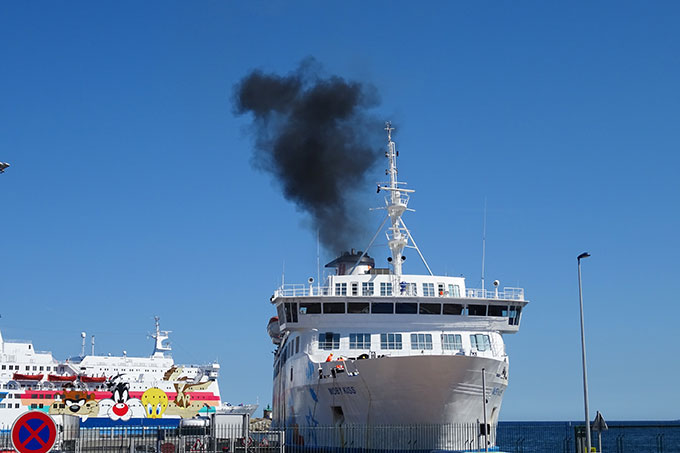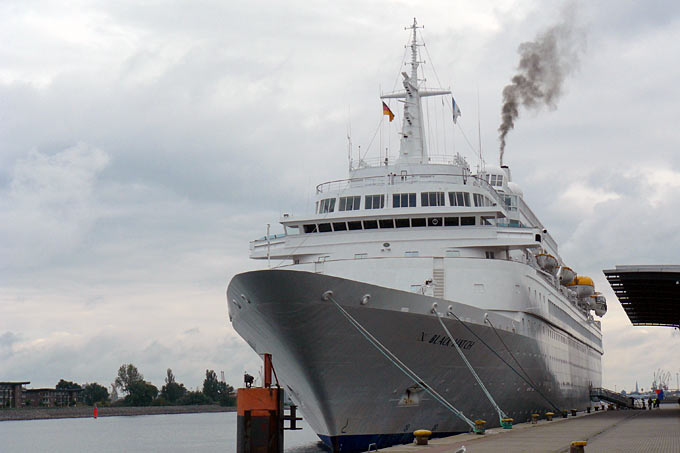3. International Mediterranean Shipping Conference
Reducing air pollution from ships in the Mediterranean Sea

Moby Ferry - Picture: NABU
Shipping is a major contributor to air pollution that has impacts on human health, environment and climate. Thanks to the creation of Sulphur Emission Control Areas (SECA) in the North and the Baltic Sea, air quality got significantly better in this area. Therefore, effective means to reduce air pollution from ships in the Mediterranean Sea such as an ECA should be established likewise.
In January this year the French Government and the European Commission have published impact assessments showing that a combined Sulphur and Nitrogen Emission Control Area would have the greatest effect. The French report highlights that particulate matter can be reduced by up to 20% and nitrogen dioxide (NO2) levels even by up to 76%, all of this leading to up to €14 billion in reduced health costs and more than 6,000 premature deaths that can be prevented every year. A third assessment commissioned by the Regional Marine Pollution Emergency Response Centre for the Mediterranean Sea (REMPEC ) is under preparation. Also in January the city of Barcelona published its call to declare the Mediterranean Sea an Emission Control Area at the conference the city of Civitavecchia and the city of Ibiza supported this call.
For the presentation of the studies and to discuss next steps which need to be taken to declare the Mediterranean Sea an ECA, the third International Mediterranean Shipping Conference brought together experts, politicians, mayors of port cities, shipping industry and environmental organizations at the European level in Madrid on March 18th 2019.
Session #1
Session #2
Session #3
Session #4
More Information
Sulphur oxide (SOx), nitrogene oxide (NOx) and (ultra) fine particle (PM) emissions from shipping are a significant threat to human health, the environment and the climate. A well established network of NGOs in Europe is working towards establishing a Mediterranean Emission Control Area (MedECA) for sulphur and nitrogen oxide emissions. more →

